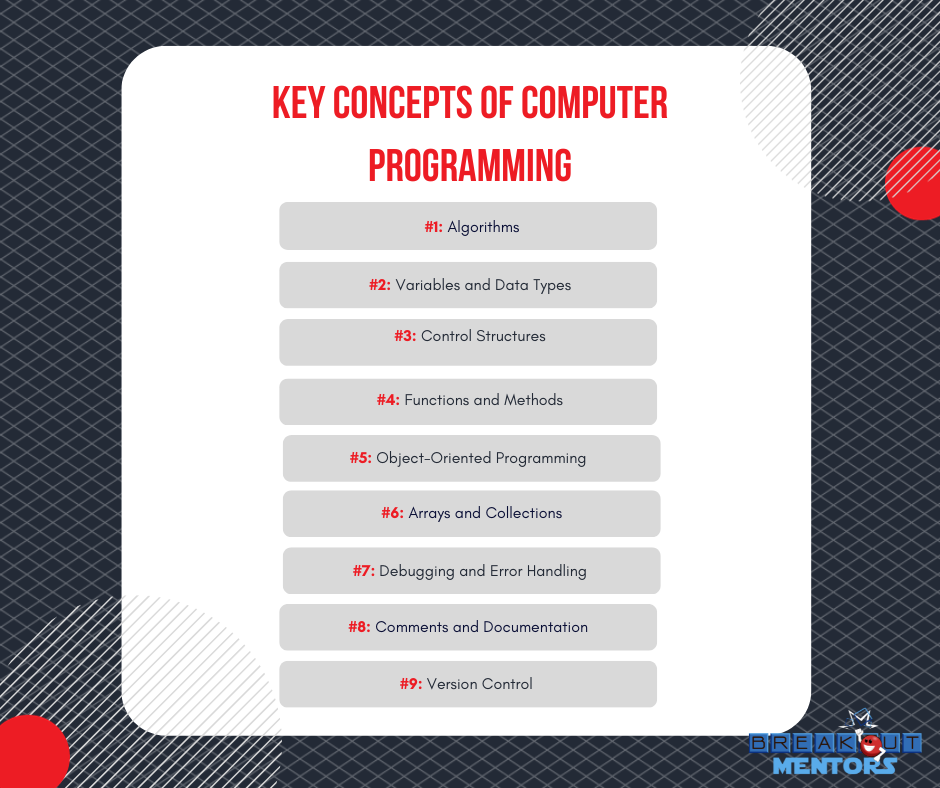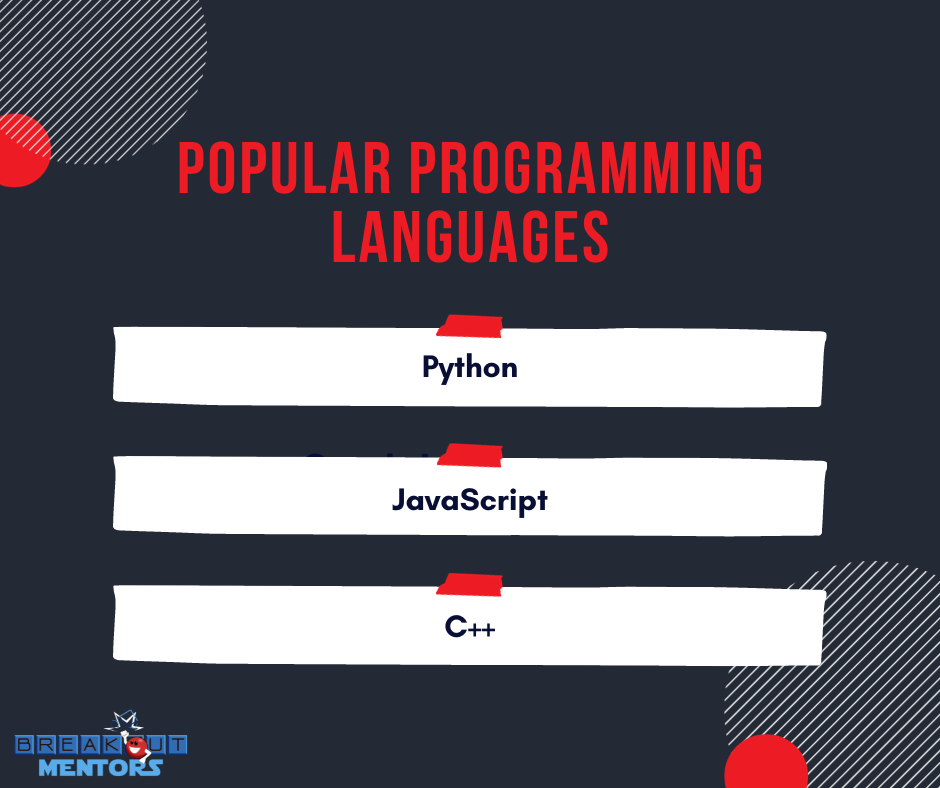Computer Programming is a complex subject to understand because it is so unlike the others. Every person who has learned it likely has a different experience, especially with today’s adults. The subject has changed and still is changing at an incredibly rapid pace. Just 30 years ago, people programmed by poking holes in paper (see punched card programming). Compare that to arithmetic education, which has changed very little over our lifetimes.
This quote by Jeff Atwood sums it up well:
For programmers, everything we know is guaranteed to be obsolete in 10 years if we’re lucky, and 5 years if we aren’t. It’s changing all the time. The field of programming is almost by definition one of constant learning. Programming is supposed to be fun – and it is, if you’re doing it right.
What is Computer Programming?

Computer programming, often simply called coding, is the process of designing and building executable computer programs to accomplish a specific task or set of tasks. At its core, it involves creating a sequence of instructions that a computer can interpret and execute to produce the desired output. These instructions are written in programming languages, the intermediary between human-readable code and the machine-level language computers understand. Programmers use their problem-solving skills and logical thinking to develop algorithms, define data structures, and implement the functionalities that make software applications and systems function.
Programming is a versatile skill with applications across various domains, from software development and web programming to data science, artificial intelligence, and beyond. It is the backbone of technological advancements, enabling the creation of everything from mobile apps and websites to complex algorithms that power machine learning models. As technology continues to evolve, computer programming remains paramount, making it a fundamental skill for individuals aspiring to navigate and contribute to the ever-changing landscape of the digital age.
What Are the Key Concepts of Computer Programming?

The world of computer programming is built upon several key concepts that form the foundation for creating effective and efficient software solutions. Here are some fundamental concepts in computer programming:
Algorithms:
Algorithms are step-by-step procedures or rules designed to perform a specific task or solve a particular problem. They serve as the blueprint for writing code, outlining the logical sequence of operations needed to achieve the desired outcome.
Variables and Data Types:
Variables are placeholders for storing data within a program. Each variable has a data type that defines the kind of data it can hold, such as integers, floating-point numbers, strings, or boolean values. Understanding variables and data types is crucial for managing and manipulating information within a program.
Control Structures:
Control structures determine the flow of a program by specifying conditions and loops. Conditional statements (if, else, switch) enable the execution of different code blocks based on certain criteria, while loops (for, while) allow the repetition of code until a specific condition is met.
Functions and Methods:
Functions and methods are blocks of reusable code that perform a specific task. Functions are independent code units, while methods are functions associated with objects in object-oriented programming. Breaking down code into functions enhances readability, reusability, and maintainability.
Object-Oriented Programming (OOP):
OOP is a programming paradigm that revolves around objects, which encapsulate data and behavior. It involves the principles of encapsulation, inheritance, and polymorphism, providing a structured approach to organizing and designing code.
Arrays and Collections:
Arrays and collections are data structures used to store multiple values. Arrays are fixed-size collections of elements, while collections like lists or dictionaries can dynamically grow or shrink. Effective use of these data structures is essential for handling and manipulating large data sets.
Debugging and Error Handling:
Debugging is the process of identifying and fixing errors or bugs in code. This involves using debugging tools and techniques to trace the execution flow and locate issues. Error handling is anticipating and managing errors to prevent program crashes and ensure graceful degradation.
Comments and Documentation:
Comments are annotations that provide explanations or context to make the code more understandable. Documentation includes comprehensive descriptions of code functionality, usage, and purpose. Both comments and documentation are critical for developers’ collaboration, maintenance, and knowledge transfer.
Version Control:
Version control systems, such as Git, enable tracking changes in code over time. They facilitate collaboration among multiple developers, help manage different project versions, and provide mechanisms for reverting to previous states.
Understanding these key concepts is essential for anyone entering the field of computer programming. Mastery of these fundamentals not only lays the groundwork for efficient coding but also enhances problem-solving skills and the ability to design robust and scalable software solutions.
Popular Programming Languages

Several programming languages have emerged as popular choices for various applications and domains. Each language has its strengths and is well-suited for specific tasks. Here are some of the most popular programming languages:
Python
Known for its simplicity and readability, Python has become one of the most widely used languages. It is versatile, with applications ranging from web development and data science to artificial intelligence and automation.
JavaScript
JavaScript is the backbone of web development, enabling dynamic and interactive content on websites. It’s a client-side scripting language that runs in web browsers and has expanded into server-side development with platforms like Node.js.
C++
Building on the foundation of the C language, C++ introduces object-oriented programming features. It is widely used in game development, system programming, and performance-critical applications.
The Right Way to Learn Computer Programming

The constantly changing nature of programming shapes the approach we take at Breakout Mentors. The first principle is to make it fun – if the student doesn’t enjoy the experience, he or she will not stick with it long enough to enjoy the incredible benefits. Willpower alone is not enough for a subject that is viewed as optional by the school system.
We also stress learning programming principles rather than specific languages. A loop is a loop regardless of the language, so mastering the concept is the important part. This is reflected in how long we recommend our students stick with Scratch programming – there is a great deal of complexity that can be added in Scratch programs. Mastering the concepts in the drag-and-drop environment with its tight feedback loop (meaning students are able to create real games much faster than they would in other languages) is better than prematurely pushing on to Java or Python because it is “real programming”.
This approach does not stop once students are ready for a traditional programming language. Understanding the concepts and why things are done a certain way are more important than the idiosyncrasies of a specific language. How would the student find out the answer if the mentor wasn’t there? One of my favorite testimonials from a mother of a Breakout Mentors student gives these thoughts:
The mentor focuses on teaching my son to think, not just follow. Software conventions, and reasons behind them, are developed with an understanding of their purpose, not just ‘do it this way because I said so’ mentality. In addition, the mentor encourages my son to check documentation for answers and find solutions that make sense for the project. My son feels proud of the work he completes and is motivated to work on his projects independently between sessions!
This learning outside of the classroom is extremely valuable. We give students the power to bring their creative ideas to life on the computer, but perhaps more importantly, we are also empowering them to learn outside of school. In such a fast paced world, if your education ends when you leave school, you’ll be in trouble. This is just one of the reasons why learning how to program while young is so valuable.
